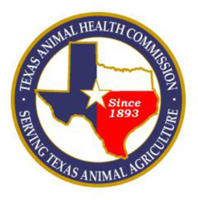|

|
 |
TAHC Update: Vesicular Stomatitis Detected in Two Horses in New Mexico (Austin, Texas - Wednesday, May 9, 2012) - Vesicular stomatitis (VS) has recently been detected in two horses in New Mexico. The U.S. Department of Agriculture Animal and Plant Health Inspection Service (APHIS) confirmed the infection of two horses in Otero County. The horses were sampled after vesicular lesions were observed on both animals. Testing at the National Veterinary Services Laboratories (NVSL) confirmed the virus as the New Jersey serotype. The New Mexico Livestock Board (NMLB) is working with APHIS on an epidemiological investigation. The original premise of five horses remains under quarantine. No new cases of Vesicular Stomatitis have been identified in the immediate area or elsewhere in the state of New Mexico. A NMLB veterinarian and inspectors inspected all livestock within a one mile radius of the index premise. There were 128 horses and 24 head of cattle examined on 18 premises. According to the New Mexico state veterinarian, based on the current findings of Vesicular Stomatitis in the area: All livestock leaving Otero County will be required to have an inspection by a veterinarian within 7 days of transport if they are traveling to a public event such as roping, racing, breeding or other forms of public exhibition or traveling interstate. The Texas Animal Health Commission (TAHC) prohibits entry of animals from VS quarantined premises, and also requires livestock to be accompanied by a valid certificate of veterinary inspection. VS can cause blisters and sores in the mouth and on the tongue, muzzle, teats or hooves of horses, cattle, swine, sheep, goats, llamas and a number of other animals. Lesions usually will heal in two or three weeks. Because the signs of VS mimic those of foot-and-mouth disease (FMD), animal health officials strongly urge livestock owners and caretakers to report potential cases of VS to their private veterinary practitioner or state livestock health officials. TAHC officials encourage livestock owners to use the best means possible to limit exposure of their livestock to insect bites. It is theorized that insects are an important vector in the transmission of VS. For more information on Texas entry requirements, visit http://www.tahc.state.tx.us/regs/entry.html or call 1-800-550-8242 and ask for the Permits Department. Updates about the New Mexico situation are available from APHIS at http://www.aphis.usda.gov/vs/nahss/equine/vsv/. A USDA APHIS-VS fact sheet about Vesicular Stomatitis is available at www.aphis.usda.gov/publications/animal_health/content/printable_version/fs_vesicular_stomatitis_07.pdf. Founded in 1893, the Texas Animal Health Commission works to protect the health of all Texas livestock, including: cattle, swine, poultry, sheep, goats, equine animals, and exotic livestock. |
| Back to News |
BENEVOLENCE | BENEFITS | GROOM ELITE | PERSONNEL | LINKS | CONTACT US
